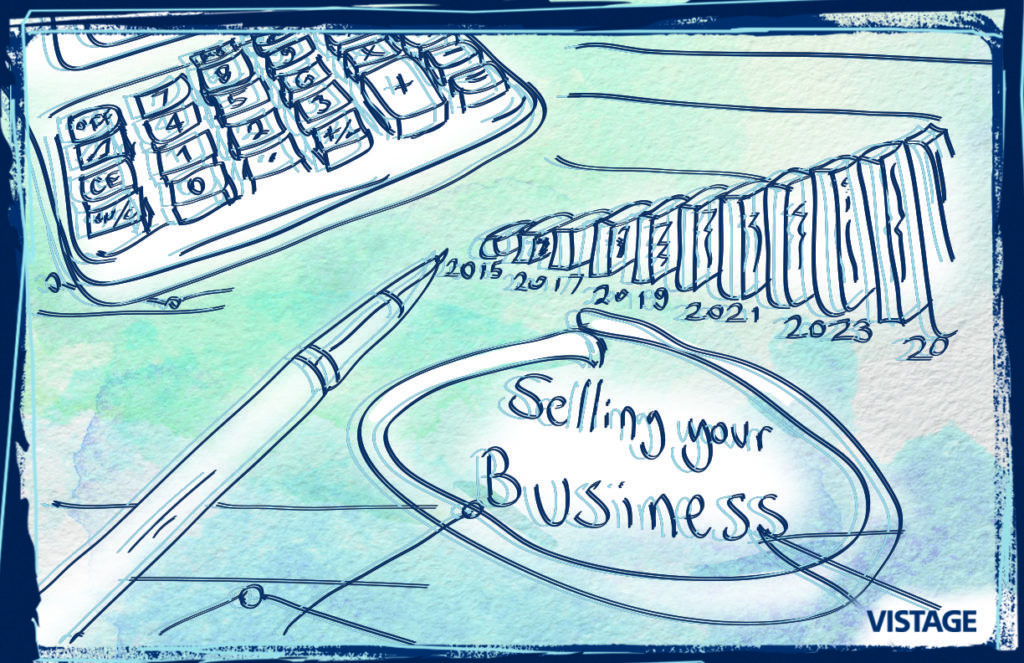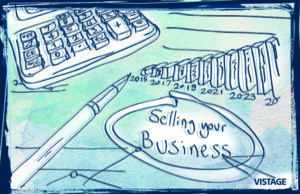Selling Your Business [M&A Series Part Four]: Employee Stock Ownership Program Three Benefits to Consider

In part four, the last article in the M&A Series on Selling Your Business, we will discuss reasons to consider selling all or part of your business through an Employee Stock Ownership Plan, commonly called an ESOP.
 Selling all or part of a business affects more than just the business owner and C-level executives in the company. When a company changes hands, it’s the employees who often feel the positive – or negative – effects of the change. Selling your company through an ESOP may not be your first thought, but it may the best option for you as an invested business owner. Here are three benefits to selling your company through an ESOP.
Selling all or part of a business affects more than just the business owner and C-level executives in the company. When a company changes hands, it’s the employees who often feel the positive – or negative – effects of the change. Selling your company through an ESOP may not be your first thought, but it may the best option for you as an invested business owner. Here are three benefits to selling your company through an ESOP.
- It puts your employees in control.
How many friends and family members do you know who have been laid off due to the sale of their company? Business owners have a lot to consider when selling their company, and behind the immediate dollar signs are the people who work hard everyday to keep your company running smoothly and the doors open for business. Jack Lee, CEO and Founder of Recom Technologies, took his employees into consideration when it was time to sell.
“We wanted to find a way to exit the business without putting at risk the careers of a number of people who had worked with us for more than 25 years to build the company,” he said. “We felt that the best way to ensure continuity of team and culture would be to sell it to the people most responsible for building the business—our employees.”
Jack and the ownership of Recom Technologies, a software development company, sold the company to its 600 employees through an ESOP when ownership wanted to retire.
“Everyone in the company participated in the ESOP stock purchase and we exited at a fair price, knowing that the business we built over 30 years would continue to thrive,” Jack said.
If you’re a business owner who has invested their heart and soul into a company, you likely have a vested interest in seeing it continue to thrive, even if you want to step back from being involved in making that happen.
- It gives you attractive financial options.
Here’s a basic overview of how an ESOP works: the company sets up an independent trust (the ESOP) that buys the owner’s stock at a price set by an independent evaluator. The trust holds the stock for the employees for as long as they work for the company. When an employee leaves or retires, he or she can sell the stock back to the company at fair market value.
Business owners get some monetary incentive when considering an ESOP too, as it’s considered a tax-favored alternative to other options, like selling to an outside buyer or competitor. If you are an owner of a C corporation, proceeds on the gain from the sale to the ESOP can be tax-deferred by reinvesting in the securities of other domestic companies. If these securities are not sold prior to the owner’s death, no capital gains tax is ever due.
If the company is an S corporation, LLC, or partnership, it can convert to a C corporation before the sale to take advantage of this tax deferral. If the company stays S, the owner does pay capital gains tax on the sale, but reaps all the other benefits of selling to an ESOP. One of the most important benefits is that the owner’s shares are purchased in tax-deductible dollars, either from company contributions or plan borrowings.
This situation sets an owner up nicely to remain with the company while taking money out of it. But more importantly, it’s a way to reward employees and provide a long-term incentive for loyalty and hard work by allowing them to purchase stock after a certain amount of time with the company, or another similar guideline for eligibility.
There’s a tangible change in morale when a company becomes an ESOP, and many positive effects that spread throughout the employees at the company. Because employees are now considered part owners of the company, it can incentivize dedication, hard work and increased accountability. All of these changes can lead to increased value and profitability of a company over time.
- You can use an ESOP to control your own destiny.
Jack Lee and the ownership of Recom Technologies wanted to retire and exit the company through their ESOP. But some business owners, even if they’re looking for some cash in exchange for ownership of the business, still feel passionate about the their business, especially if they’ve built it from the ground up. Sometimes, when selling to an outside buyer or a private equity firm, business owners can feel a loss of control.
But because ESOPs are funded by the employer, the employer is in control. The sale of the company through an ESOP can happen all at once or slowly, for as little or as much stock the employer wants to sell. In fact, when creating an ESOP, an employer can put terms in place for how much input employees have at the corporate level of the company, ensuring that they do or don’t have a say in these parts of the business.
Setting up an ESOP allows the owner to stay with the business however they choose to, which is a key factor in choosing how to sell all or some of your business. As a business owner, it’s up to you to decide what the end goal is. If you’re looking to get some cash flow into your business but consider employees an important part of this transaction, selling your company through an ESOP may be right for you.
Category: Mergers & Acquisitions
Tags: deal, employees, ESOP, selling your company

